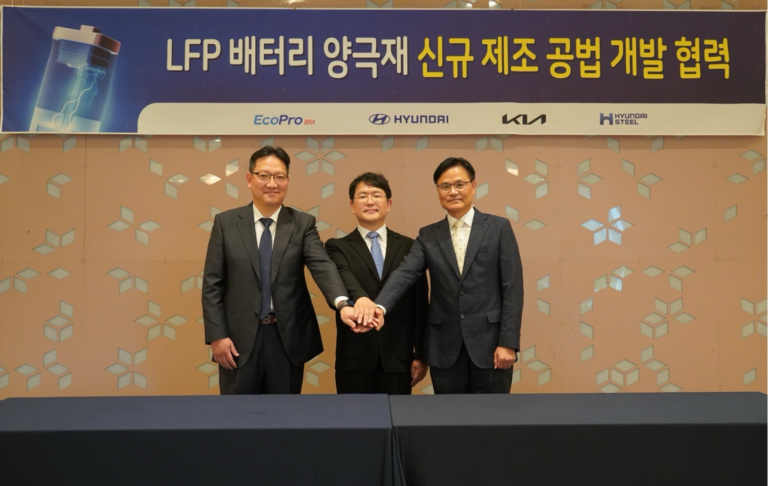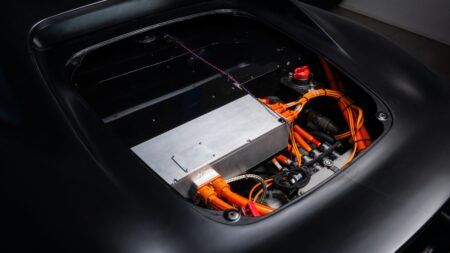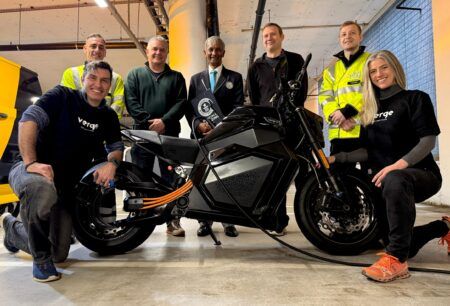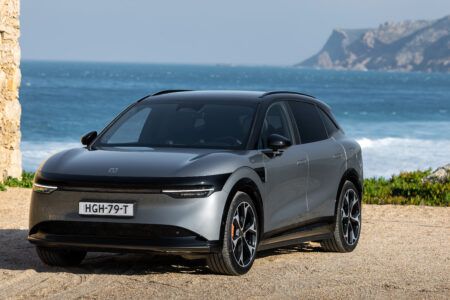Hyundai Motor Company and Kia Corporation have initiated a project to develop lithium iron phosphate (LFP) battery cathode material, aiming to enhance their competitiveness in the EV market. The four-year project, launched in September, is a collaboration with Hyundai Steel and EcoPro BM, supported by the Korean Ministry of Trade, Industry and Energy.
The project focuses on synthesizing materials directly without creating a precursor for LFP battery cathode material production. This direct synthesis process is expected to reduce hazardous substance emissions and lower production costs by eliminating the precursor production step.
“To meet future demand in the EV market, rapid technological development and effective battery supply chain establishment are essential,” said Soonjoon Jung, Vice President and Head of the Electrification and Driving Materials Development Group at Hyundai Motor and Kia. “Through this project, we aim to reduce import reliance and enhance the technological competitiveness of the country and Hyundai Motor Group by internalizing necessary technologies.”
Hyundai Motor and Kia will work with Hyundai Steel to develop high-purity fine iron powder processing technology using domestically recycled iron. EcoPro BM will then use this technology to develop directly synthesized LFP battery cathode material.
The collaboration aims to create LFP cathode material that enables fast charging and performs well at low temperatures. This project is significant as it connects the steel, battery, and automotive sectors, potentially advancing technology in the LFP battery material field.
The initiative aligns with Hyundai Motor and Kia’s long-term strategies announced earlier this year, which focus on enhancing battery capabilities, performance, safety, and cost competitiveness of EVs. By developing this technology, the companies hope to strengthen their position in the growing EV market and reduce reliance on imported materials.





